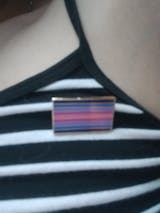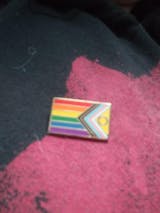Agender
Agender is a non-binary gender identity that describes someone who does not identify with any gender. The term literally means "without gender."
Here's a breakdown of what that entails:
Lack of Gender Identity: At its core, being agender means that an individual does not feel a connection to the social and cultural construct of gender. They don't identify as a man, a woman, or any other gender.
Not the Same as Asexual or Aromantic: It's important to note that agender is about gender identity, not sexual or romantic attraction. An agender person can have any sexual orientation (e.g., heterosexual, homosexual, bisexual, asexual) and any romantic orientation (e.g., heteroromantic, homoromantic, biromantic, aromantic). These are separate aspects of identity.
Diverse Experiences: The experience of being agender can vary greatly from person to person. Some agender individuals may:
- Feel a complete absence of gender.
- See gender as irrelevant to their sense of self.
- Identify as neither male nor female.
- Feel a neutrality regarding gender.
Not Necessarily About Physical Presentation: An agender person's gender identity does not dictate their gender expression (how they present themselves outwardly). They might present in a way that is traditionally masculine, feminine, androgynous, or something else entirely. Their presentation is a personal choice and not inherently tied to their lack of gender identity.
Part of the Non-Binary Umbrella: Agender is a significant identity within the broader non-binary (or genderqueer) umbrella, which encompasses all gender identities that are not exclusively man or woman.
In simple terms, agender describes someone who does not identify with any gender. For them, the concept of gender does not play a role in their sense of self.




